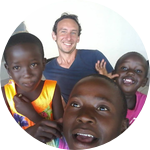About This Project
We know that: (i) sport can be a powerful context in which to teach essential life skills; (ii) physical activity and life skills are important components of treating mental illness; (iii) Aussies love sport; and (iv) 1 in 4 young Australians will experience mental illness. After doing the math on these concepts, the aim of this project is to design, implement, and assess a sport based life skills program for young Australians who have experienced a first episode of psychotic illness.
Ask the Scientists
Join The DiscussionWhat is the context of this research?
Individuals who have experienced a first episode of psychosis will be targeted for three reasons. First, young people who are treated when they initially experience psychosis respond well to dynamic and multi-faceted intervention approaches, including those that incorporate physical activity and/or life-skills components. Second, the health enhancing effects of physical activity are critical for this population, who tend to experience elevated rates of obesity and cardio-metabolic diseases. Third, the goal of minimised symptoms and a return to functional recovery for young people with psychosis comes as a result, in part, of efforts to nurture independent living, social, and vocational skills.
What is the significance of this project?
This project will contribute to knowledge and practice in a manner that capitalises on Australia’s strength in sport and speaks to the continued need for mental health promotion. It will do so by combining three fields of research (i) sport and life skills development, (ii) physical activity and mental health promotion, and (iii) treatment, recovery, and recurrence prevention for young people with a first episode of psychosis in a way that is novel and needed.
The findings of the research can be used to help make existing sport outreach programs more effective and inclusive, and inform the design of future programs and research projects. Specifically, the results will answer questions about how sport can be used to better the lives of young people who have experienced psychosis.
What are the goals of the project?
Our goal is to use sport to help young people who have experienced psychosis learn life skills (e.g., social skills, confidence, communication, conflict resolution, emotional control, etc) to enable them to better cope and thrive. The project is already underway with a systematic review of the literature and interviews within the population. These steps will enable us to best understand how to design a sport program for young people with psychosis. Once funded by Experiment, we will run the program. This program will be a pilot study of a sport-based life skills intervention with approx. 40 young people (ages 16-25) who have experienced psychosis. Afterwards, we will conduct a process evaluation to ascertain the feasibility of using sport as a context for mental health promotion.
Budget
This PhD research has some funding from the University to cover essential items (e.g., hiring sporting facilities). However, we need more funding to translate the vision into reality. You see, sometimes those that need a program the most have the hardest time accessing it. Our pilot work - speaking with clinicians and young people who have experienced psychosis- identified recruitment and retention of participants as the biggest hurdle. Experiment funding will be used to directly address these issues. Potential participants may be resistant to attend or continue because of logistical (e.g., transportation) or psychological (e.g., social anxiety) reasons. Travel reimbursement for the participants will alleviate some logistical issues, and the in-person support of clinicians who are specially trained to work with those with psychosis will help make the intervention setting a safe and welcoming space.
***Please note that all budget items and funding are in US dollars***
Endorsed by
Meet the Team
Affiliates
Affiliates
Affiliates
Team Bio
Our group came together over an idea and coffee, which lead to a PhD supervision team. We have a well rounded groups of individuals whose diverse specialties in health psychology, sport and exercise psychology, applied sport psychology, and youth mental health will bring life to this project. Together, the team offers a wealth of both supervision and research experience, and a PhD student who is hungry to learn and contribute positively to the mental health of young people.
Lauren Brooke
I am a current PhD student and bring to the project a background in applied sport psychology and a fresh enthusiasm for research. My educational background includes a Bachelor of Arts in Psychology from the University of California, Davis (2009), and a Master of Arts in Sport Psychology from John F. Kennedy University (2013). After receiving a competitive Endeavour Postgraduate Research Scholarship from the Australian government, I relocated from California to Perth in late 2015 to pursue my PhD at Curtin University.
My PhD project, encompassing both health and sport psychology elements, focuses on using sport as a platform to teach important life skills to young people with mental health issues. I have always been passionate about sport, and learned first hand growing up as an athlete the power it has to shape an individual and teach lessons and skills that are profoundly useful well outside of the sporting venue.
When not studying, I can be found exploring Perth and beautiful Western Australia, planning my next travel adventures, practicing yoga, running, riding horses, and trying to understand the Aussie accent.
Daniel Gucciardi
I am an Associate Professor in the School of Physiotherapy and Exercise Science. I grew up with sport and outdoor activities in Perth, Australia - playing Aussie Rules football (https://en.wikipedia.org/wiki/...) during the winter months and enjoying the water lifestyle during the summer months (e.g., wakeboarding). Along the way I developed an interest in the psychological aspects of sport and exercise, having seen firsthand the importance of psychology for performance but also fostering positive outcomes for young people (e.g., well being, social inclusion). Now I "work" as a teacher and researcher who explores the intersection of psychology with sport and exercise in areas such as (anti)doping in sport, resilience, and life skills development. You can follow me on Twitter (@DanielGucciardi) for updates on my work in this space.
Nikos Ntoumanis
I am interested in personal and contextual factors that optimise motivation and promote performance, morality, psychological well-being and health-conducive behaviours. My areas of interest are physical activity
promotion in different community settings, self-regulation of weight management goals (diet and physical activity goals), and psychology of sport with emphasis on applications of contemporary theories of motivation. Please see my Curtin staff profile for more information.
Ashleigh Lin
I am the odd one out in the team – I am not very sporty but I bring my vital knowledge of the mental health of young people to the project. I am a Research Fellow at the Telethon Kids Institute and my research is focused on the mental health and well being of young people. I work with a range of young people with various mental health concerns and have many years’ experience of research with people in the early stages of psychotic disorder. I am interested in how we can reduce the disability associated with psychosis to help young people recover socially and vocationally.
Lab Notes
Nothing posted yet.
Additional Information
You may be wondering- what is a first episode of psychosis (FEP)?
Great question! A first episode of psychosis refers to an individual’s first experience with a psychotic episode or psychotic symptoms, which commonly first presents in late adolescence/early adulthood (ages 16-25). Psychotic symptoms may include confused thinking, delusions, hallucinations, and/or changed feelings/behaviours, and often occur in individuals with schizophrenia, bipolar disorder, or depression. See this psychosis fact sheet created by headspace, an Australian National Youth Mental Health Foundation.
Project Backers
- 51Backers
- 103%Funded
- $6,206Total Donations
- $119.35Average Donation







